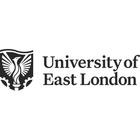- News and articles
- Find usIDP AustraliaIDP BahrainIDP BangladeshIDP CambodiaIDP CanadaIDP ChinaIDP EgyptIDP GhanaIDP Hong KongIDP IndiaIDP IndonesiaIDP IranIDP JordanIDP KenyaIDP KoreaIDP KuwaitIDP LebanonIDP MalaysiaIDP MauritiusIDP Middle EastIDP NepalIDP New ZealandIDP NigeriaIDP OmanIDP PakistanIDP PhilippinesIDP Saudi ArabiaIDP SingaporeIDP Sri LankaIDP Taiwan, ChinaIDP ThailandIDP TurkeyIDP UAEIDP VietnamIDP Corporate
- Social
- English
- Where we operate
- Courses
- Scholarships
- IELTS
- About IDP
- Student Essentials
- News and articles
- Find us
- Find us
- Find nearest IDP offices
- IDP Australia
- IDP Bahrain
- IDP Bangladesh
- IDP Cambodia
- IDP Canada
- IDP China
- IDP Egypt
- IDP Ghana
- IDP Hong Kong
- IDP India
- IDP Indonesia
- IDP Iran
- IDP Jordan
- IDP Kenya
- IDP Korea
- IDP Kuwait
- IDP Lebanon
- IDP Malaysia
- IDP Mauritius
- IDP Middle East
- IDP Nepal
- IDP New Zealand
- IDP Nigeria
- IDP Oman
- IDP Pakistan
- IDP Philippines
- IDP Saudi Arabia
- IDP Singapore
- IDP Sri Lanka
- IDP Taiwan, China
- IDP Thailand
- IDP Turkey
- IDP UAE
- IDP Vietnam
- IDP Corporate
- Social
- Language Switcher
- IDP Education /
- Colleges and Universities /
- United Kingdom /
- University Of East London /
- MSc Sustainable Energy Engi...


Location
United Kingdom
Qualification
Masters Degree (Taught)
Fees
GBP15960
(2025)
Duration
1 Year(s)
Next intake
08 September 2025
Entry Score
6.0
IELTSCourse info
You will be taught by academics and industrial practitioners we work with. You will benefit from our close links with major employers, and the continued support of the Industrial Advisory Board in enhancing the employability of our students in the wider engineering sector. The course covers topics such as wind, photovoltaic, thermo-mechanical energy conversion systems, hybrid renewable energy systems, sustainable energy and the environment, energy efficiency, building energy modelling and engineering optimisation. Apart from the technical content, MSc courses are unique, as there is a strong emphasis on professional life and employability skills, embedded throughout all aspects of your advanced technical course focusing on your enhanced key skills such as communication, digital proficiency, intelligence (like emotional and social) and teamwork. The programme will also offer an optional placement year to all students, enabling them to experience the real world and effectively connect their university experience with it.
All modules include coursework, for which you will have opportunities to apply your knowledge to engineering projects based on real-life scenarios. The coursework will include analysis and design projects, research reports, group and seminar presentations and a research dissertation project.
You will also attend lectures, seminars and tutorials and you will work both individually and in groups.
Globally, overall demand for renewables is expected to increase due to their use in the electricity sector and there is already a high demand for technical professionals in this area. An MSc qualification in Sustainable Energy Engineering will give you a practical edge as the discipline overlaps with a number of engineering profession. There are many career paths available, ranging from hard-core engineering to consultancy and even policy-making government institutions, once you have completed this course. Many graduates choose to pursue a professional high-flying career in the expansive engineering sector, in roles such as consultants, designers, field engineers, project managers or senior managers.
- Scholarships View all scholarships
- Internships
Entry requirements for University Of East London
Overall Academic IELTS 6.0 with a minimum of 6.0 in Writing and Speaking, minimum 5.5 in Reading and Listening (or recognised equivalent).
Application Deadline
The application deadline isn't available Speak to an IDP counsellor for more detailed information
Further information
If you aren't eligible for the above entry requirements, you might ant to explore pathway options at University Of East London. If you want to find out more, speak to our counsellors.
THE World Ranking
1001st / 1250
THE World Ranking123rd / 130
Complete University guideWhat our students think
We’ve haven’t received any reviews for this institution yet.
Recommended for you
- Masters Degree (Taught)
- Farnham , United Kingdom
- Next intake:05/2025
- Entry Score: IELTS 5.5
- GBP17750 (2025)
- Masters Degree (Taught)
- Bolton , United Kingdom
- Next intake:01/2026
- Entry Score: IELTS 6.0
- GBP13550 (2025)
- THE World Ranking:351
- Masters Degree (Taught)
- Uxbridge , United Kingdom
- Next intake:09/2025
- Entry Score: IELTS 6.0
- GBP25000 (2025)
- Masters Degree (Taught)
- Bolton , United Kingdom
- Next intake:09/2025
- Entry Score: IELTS 6.0
- GBP15950 (2025)
- Masters Degree (Taught)
- Bolton , United Kingdom
- Next intake:09/2025
- Entry Score: IELTS 6.0
- GBP5317 (2025)
- THE World Ranking:401
- Masters Degree (Taught)
- Portsmouth , United Kingdom
- Next intake:01/2027
- Entry Score: IELTS 6.0
- GBP19200 (2025)
- THE World Ranking:601
- Graduate Diploma
- Belfast , United Kingdom
- Next intake:09/2025
- Entry Score: IELTS 6.0
- GBP10560 (2025)
- THE World Ranking:601
- Masters Degree (Taught)
- London , United Kingdom
- Next intake:09/2025
- Entry Score: IELTS 6.0
- GBP18700 (2025)
Your action plan
Step 1
Shortlist your courses
Choose the best three courses you’re most likely to pursue.
Step 2
Check your eligibility
Get an instant in-principle offer for courses with the IDP FastLane tag.
Step 3
Apply through IDP Live
Fill out the form once and use it to apply to multiple courses.
How does IDP FastLane work?
With the FastLane 'Offer in Principle', you'll know in minutes if you'll be accepted!
Select an institution and course
Create your academic profile
Submit your application for an 'Offer in Principle'
Your chosen institution(s) will send you a decision in minutes!
Get ready to apply with an expert counsellor




